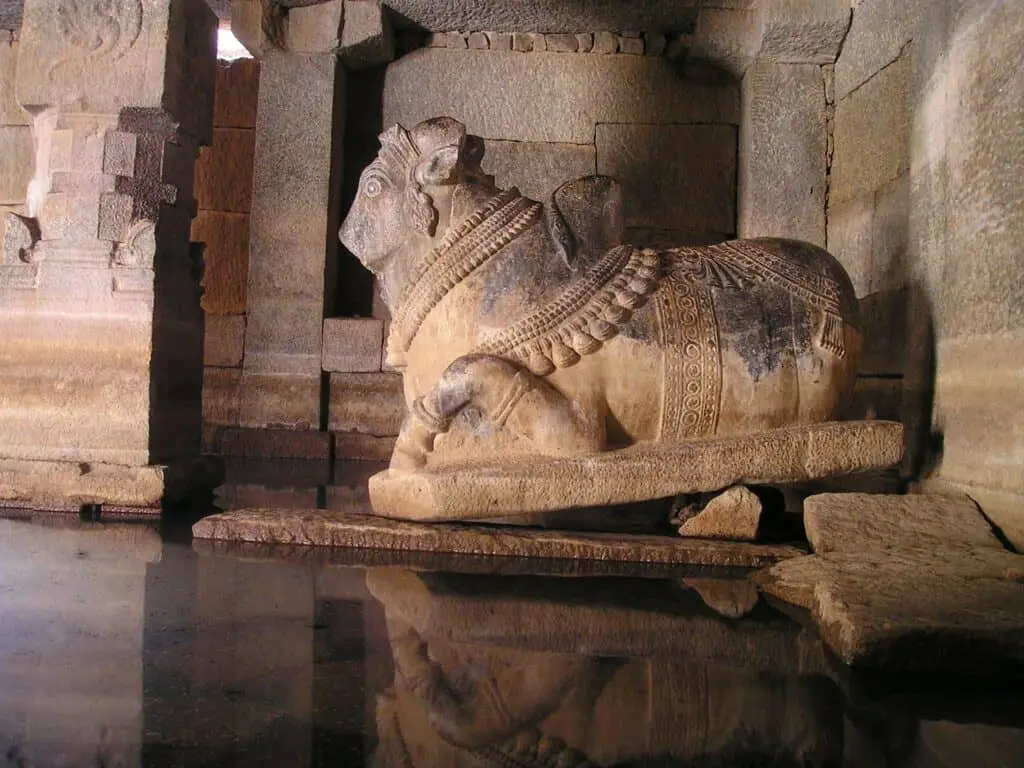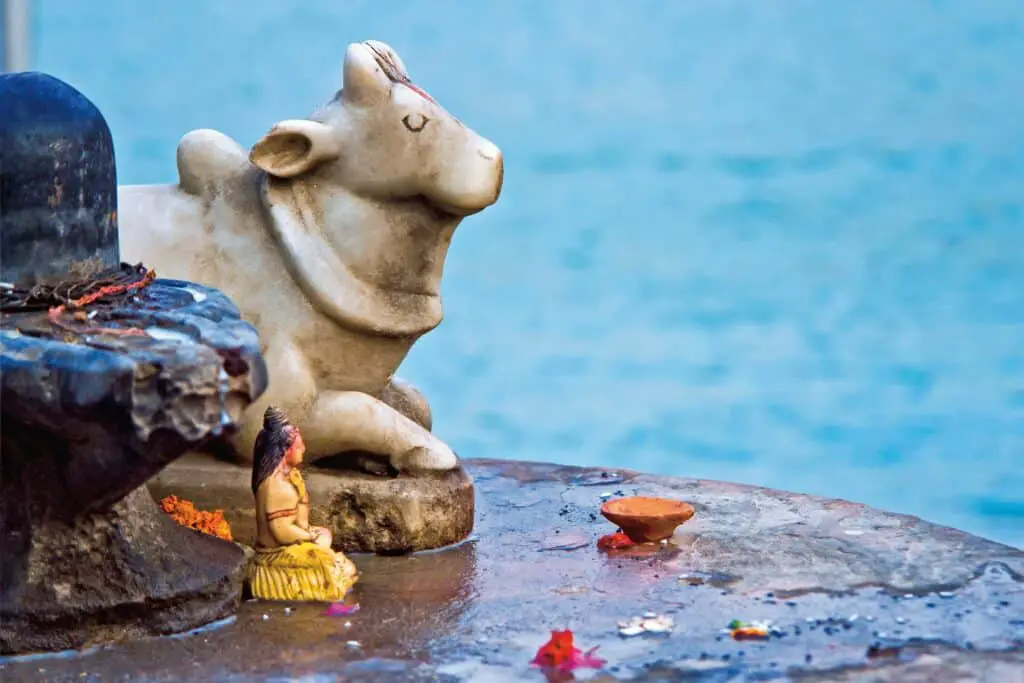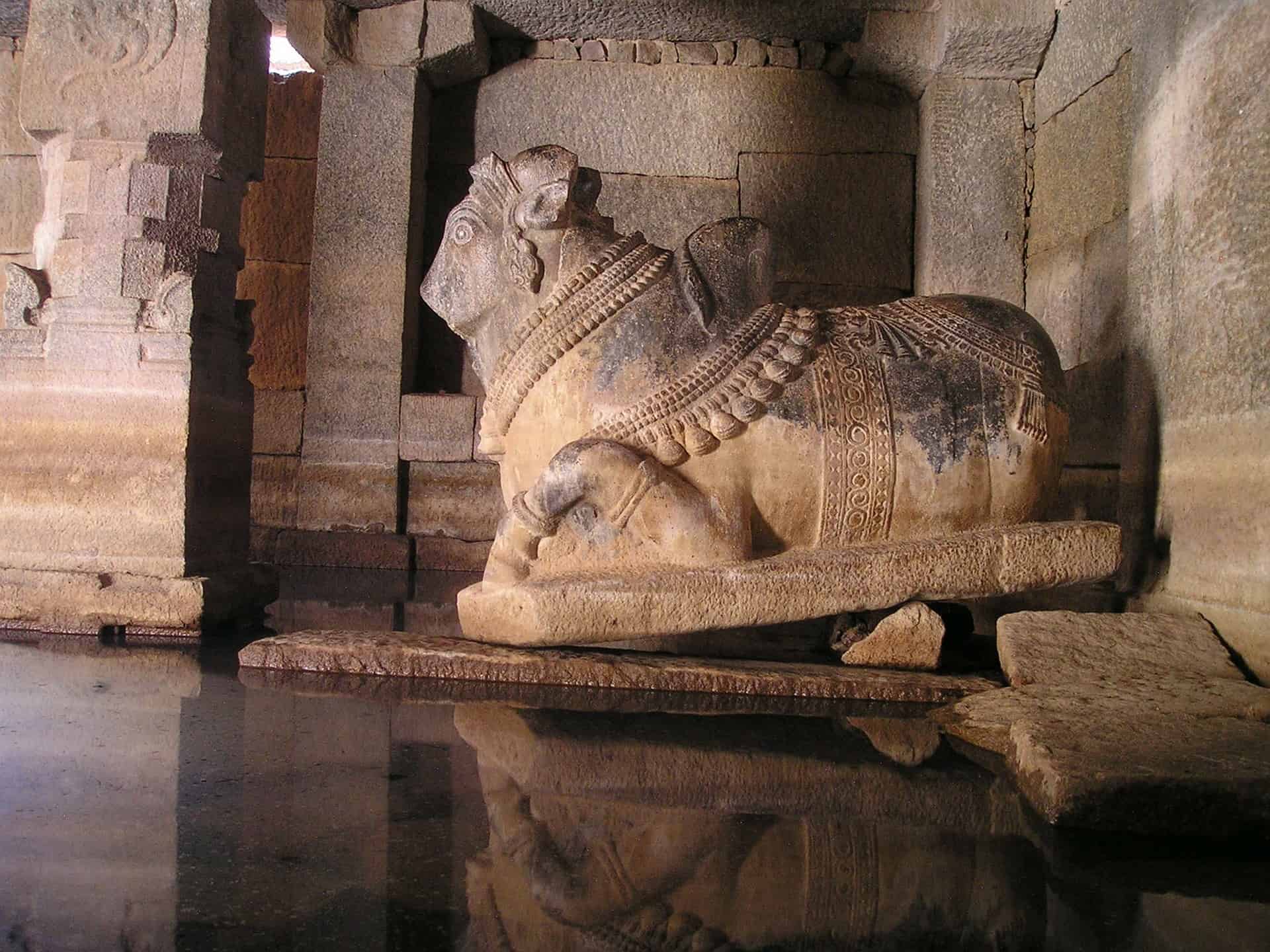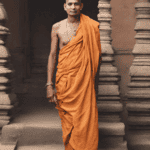The Hindus have practices and beliefs that teach them that the cow is a holy animal. The reason why Hindus worship the Cow is not just because it has been followed by their elders but is also ingrained in their traditional values. The animal is sacred and important to them as it gives nutrients and health by the products it provides and thus, they consider it to be worthy of worship.
The next thought in your mind must be is the animal worshiped as God? So, to tell you in their celebrations the cow is adorned, decorated and honored by it. Though the religion does not consider the animal equal to their deities yet the creature is respected and honored enough for being a holy animal by the Hindus.
The Hindus consider not only the cow but every living creature to be valued may it be the four-legged mammals, fish in the sea, or the birds in the sky. The religion also realizes this appreciation for life but has a personal devotion for the sacred animal.
According to the Hinduism, the cow signifies the rest of the creatures. The Holy animal is the representation of the Earth. She is a giver and considered to be a generous in nature. The Cow is said to represent the existence of life on our earth. The cow is considered to be selfless as the animal demands nothing but only food, grass and water. It provides us with milk and health through it just as a kind soul lends.

The creature is vital to life because it offers humans with nutrients and health. The animal also illustrates mercy and prosperity with abundance. The respect for cows in ingrained in the Hindus and their religion as the animal is full of humility, acceptance and connection with nature and health.
How is the Cow considered to be selfless?
The charitable cow provides us with various types of dairy products like milk, yogurt, cream and more. The religion believes in protecting and taking good care of this generous creature who gives each one irrespective of their caste and creed. They believe such remarkable creatures should be preserved.
The protection of the Cow is not just sheer safety of the animal. It tells preservation of all the creatures who are innocent and lack strength. The abuse or misuse of these creatures is considered as a sin and inhuman. The religion believes animals who give us so much without taking anything in return should be well treated.

Importance of the Cow for Hindu people
The Hindu religion does not just respect the cow but also provides it with garlands and extraordinary food at festivities in India. The main annual festival is Gopashtama. In this festival it is clearly seen how affectionately the Hindus adore their cows with colorful cow jewelry and clothes are vended at Melas all over the country of India. The Hindu children are taught to decorate the cow with accessories and paints at a very young age.
The essence of a cow is manifested in Kamadhenu who is the divine wish granter. The cow is also the one who contributes with the auspicious products required for the conduction of Pooja and rituals. Ghee and milk both are necessary for several purposes may it be offering or for penance.
In the country of India, there are over 3000 cow shelter homes for taking care of old cows which are called as the Ghaushalas. Most of the Hindus consume non-vegetarian food and so to maintain the respect and honor there is a prohibition of beef in the Hindu caste as well as in India now.
The cow portrays innocence and humility by her nature and behaviour she is said to be the symbolic representation of Ahinsa or non violence. Also, the cow also signifies prestige, energy, motherhood and generous livelihood.
Cows depict prosperity and happiness on the Earthly existence according to the Vedas. One of the Rig Veda scripture says that the generous cows have come to bless us with good fortune. And that they might live in their shelters. And as they live there may they multiple and bring forth offspring who would give milk for Indra. The offspring may be of many colours. Also, as the milk of the cow helps to make a person strong and adds on to their beauty. So, they are welcomed to be glad and be safe as they will be taken care of.
What expresses its Purity
The belief in Hinduism is that the cow is an envoy of divine and real goodwill and thus it should be taken care of with protection and respect. The animal is also relatable to some Hindus Gods like Lord Shiva where his mount is a bull called Nandi.
The Indra is nearly related with the wish-granting cow Kamadhenu. And then Lord Krishna who was a cow caretaker when he was young, and also many goddesses because of the mother figure they represent.
Historical reason of its sacredness in Hinduism
The birth of showing respect to the cow can be seen during the Vedic time. The people who immigrated to India in the 2nd-millennium BCE were cattle farmers. Cattle had critical financial importance and was indicated in their religion also. The cattle were offered and their meat was eaten in the history of India but the killing of an animal who induced milk was constantly restricted. This practice was also prohibited in scriptures of the Mahabharata, the great Sanskrit epic, and also in the spiritual and ethical law called as the Manu-smirti and the milking cow in the Rigveda was announced to be un-slayable and forbidden to put to sacrifice.
The level of honour given to the cow is implied by the practice in rituals of healing, sanctification, and repentance of the five deeds or panchakarma that are the five derivatives of the cow—milk, butter, dung, urine, and curd.
Thereafter, with the increase of the objective of ahinsa that is no harm injury the scarcity of the intention to abuse living animals especially the cow arrived to signify an existence of nonviolent liberality. Also, to add to this, as her commodities provided with nourishment and health, the creature is related with a mother, Mother Earth and also called as Gai Maata. The generous creature was also related equal to the Brahmans and they believed that slaughtering or murdering a cow was as equal to taking the life of a Brahman who belongs to the priestly caste.
Their slaughter was also considered to be a crime by the Gupta Kings in the 1st millennium and a constitution against cow murdering remained in many dignified provinces where the governor was a Hindu or followed Hinduism in the 20th Century.
Particularly in the late 19 Century in the north region of India, an action to preserve cows arose that brought unity in between the Hindus and differentiate d them from the Muslim caste by urging the government to put a prohibition on cow murder. The anti-religious and political issues lead to protests and also the division of the subcontinent in the year 1947.
To summarise, Hinduism has a lot of respect for the sacred Cow and considers it to be holy. There are several Hindus customs in which the cow is worshipped and is also fed with food grains. Certain people also consider feeding it as a ‘Manyatta’ to remove every hurdle from their life and make their ways successful.
Also, at the same time they honor and respect the animal. They make sure that the one who provides so freely should receive back in abundance the value that it deserves.
The respect for all creatures is seen in Hinduism but the Cow is considered to be sacred and holy through the tradition and customs. And so, the Cow is worshiped and is considered worthy because of its behavior and innocence that is portrayed in its nature.


